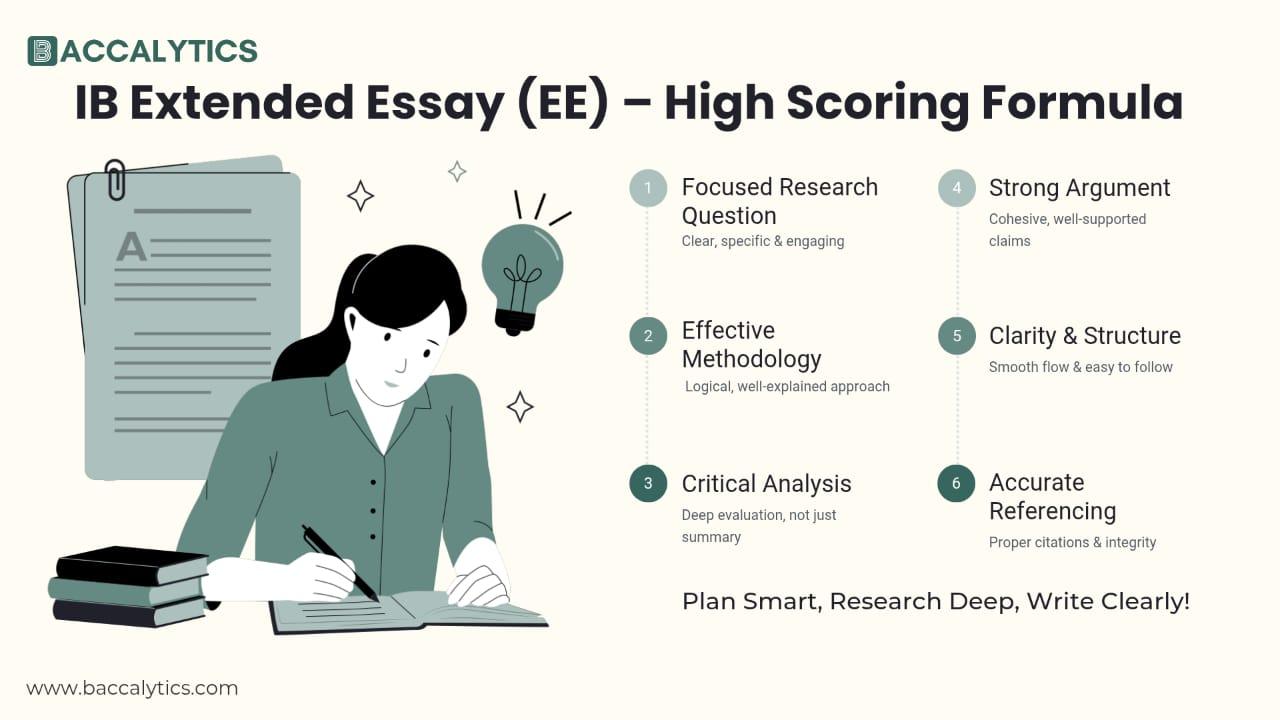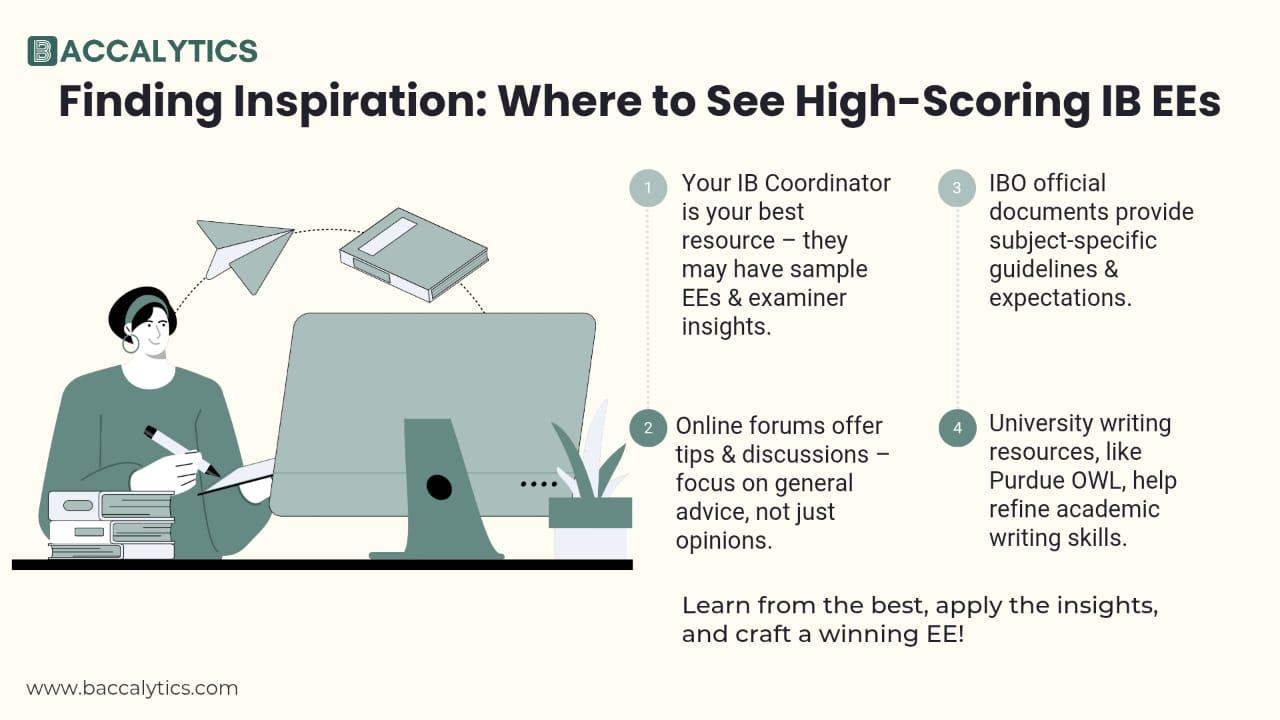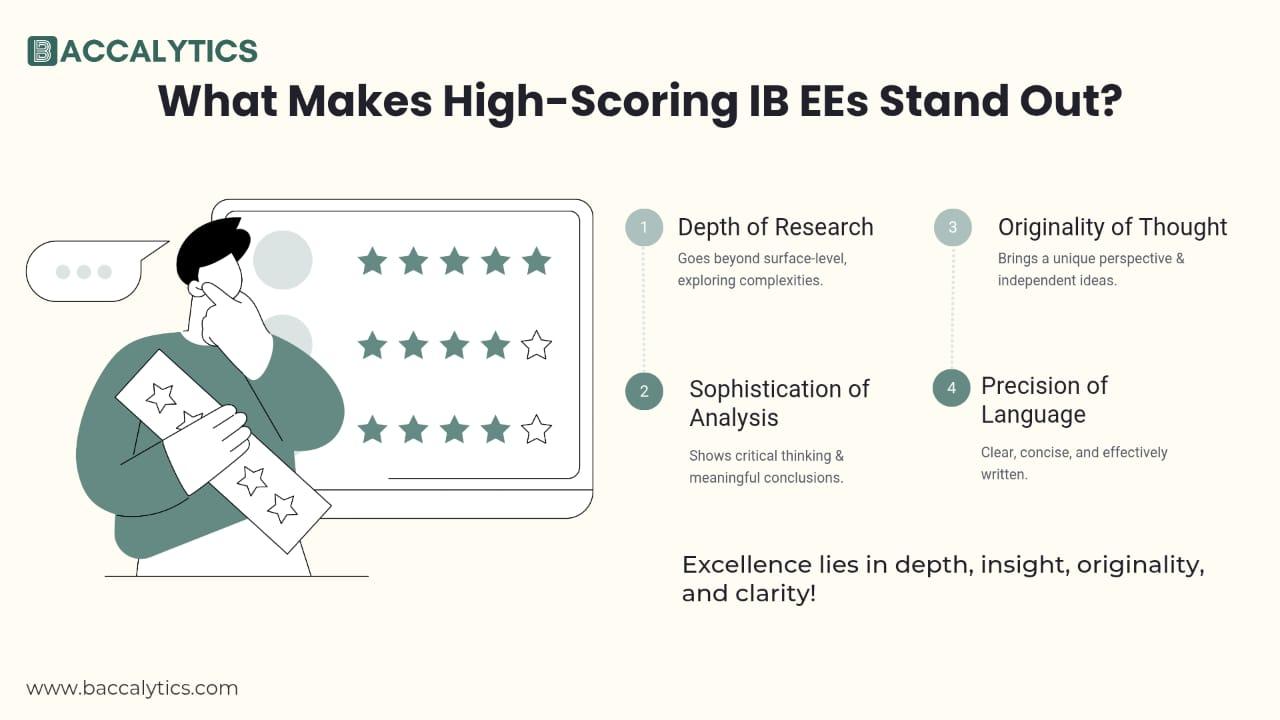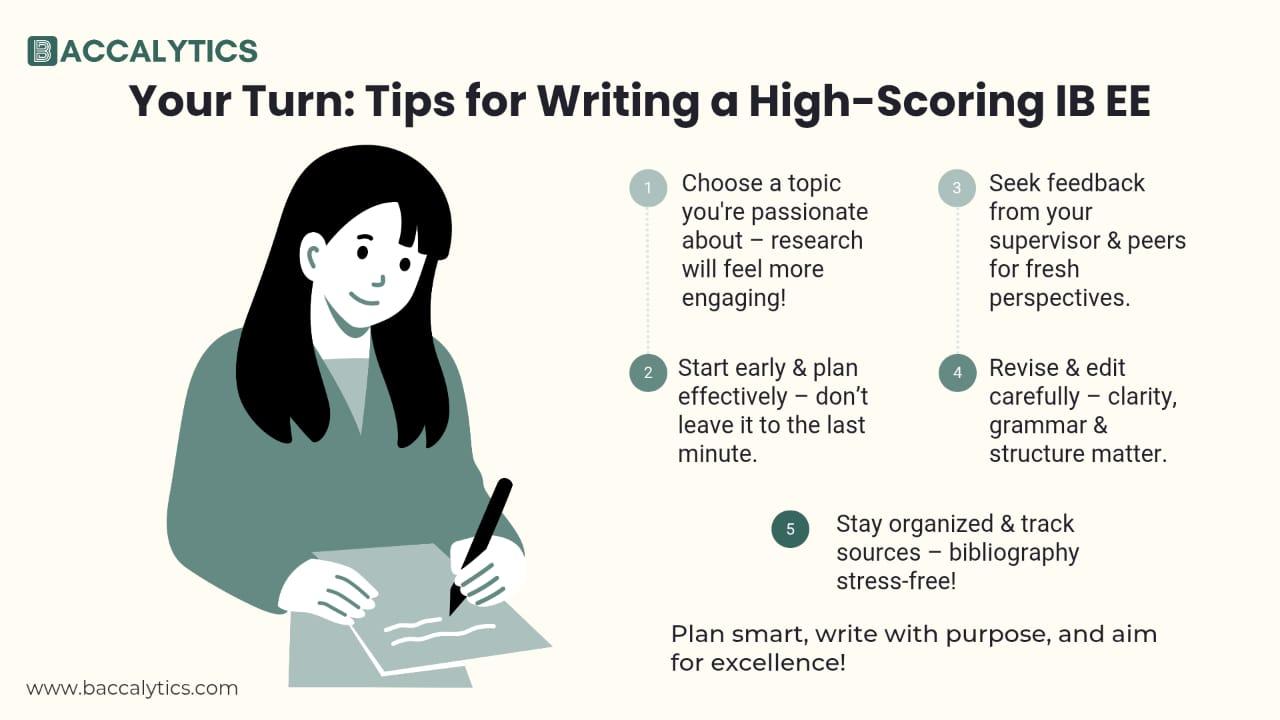
IB EE Examples: High-Scoring Essays & What Makes Them Great
Rabia Mateen
So, what's the magic formula? Honestly, it's less magic and more a blend of thoughtful planning, rigorous research, and clear communication. Think of it like baking a cake – you need the right ingredients, precise measurements, and a good oven.
Focused Research Question: A stellar EE always starts with a sharp, well-defined research question. It's not too broad, not too narrow, but just right. It should be something you're genuinely curious about.
Effective Methodology: Your approach matters. You need a clear, logical method for gathering and analyzing your data. Whether it's a scientific experiment, a literary analysis, or a historical investigation, explain your process thoroughly.
Critical Analysis: Don't just summarize information. Dig deep! Analyze your findings, evaluate different perspectives, and draw your own conclusions. Show that you've thought critically about your topic.
Strong Argument: Your EE should present a cohesive argument that flows logically from your research question to your conclusion. Every paragraph should contribute to supporting your main point.
Clarity and Structure: A well-structured EE is easy to follow. Use clear language, logical transitions, and a consistent format. Your reader should be able to understand your argument without getting lost.
Accurate Referencing: Plagiarism is a big no-no. Always cite your sources correctly and consistently. This shows academic integrity and supports your claims.
Finding Inspiration: Where to See High-Scoring Examples

Okay, so you know what makes a good EE, but where can you find some examples? Unfortunately, access to actual high-scoring EEs is often limited due to copyright and privacy concerns. However, you can find valuable resources online and through your school's IB coordinator.
Your IB Coordinator: They are your best resource! They may have access to sample EEs or be able to provide guidance on what examiners are looking for.
Online Forums and Communities: While you won't find complete EEs, you can find discussions and tips from students and teachers. Remember to take everything with a grain of salt and focus on the general advice.
IBO official documents: the IBO provides various documents that can aid in your EE writing, such as subject specific guidelines. These are great resources to understand the expectations. You can find more information regarding the IB program here: International Baccalaureate Organization
Universities that give advice on academic writing: Many universities offer online resources that can help to improve academic writing. For example, Purdue university has an online writing lab that can be useful. Purdue OWL
What Makes Those Examples Great?

When you do come across examples or discussions of high-scoring EEs, pay attention to these key features:
Depth of Research: Notice how thoroughly the student has explored their topic. They've gone beyond surface-level information and delved into the complexities of their research question.
Sophistication of Analysis: Look for evidence of critical thinking and insightful analysis. The student has not just presented facts but has interpreted them and drawn meaningful conclusions.
Originality of Thought: A high-scoring EE often demonstrates a unique perspective or a fresh approach to the topic. The student has shown that they can think independently and contribute their own ideas.
Precision of Language: The writing is clear, concise, and precise. The student has used language effectively to convey their meaning and avoid ambiguity.
Your Turn: Tips for Writing a High-Scoring EE

Now that you've got a better understanding of what makes a great EE, here are a few tips to help you on your way:
Choose a topic you're passionate about. This will make the research process much more enjoyable and engaging.
Start early and plan your time effectively. Don't leave everything to the last minute.
Seek feedback from your supervisor and peers. Getting different perspectives can help you identify areas for improvement.
Revise and edit your work carefully. Pay attention to grammar, spelling, and clarity.
Stay organized and keep track of your sources. This will save you time and stress when you're writing your bibliography.
Writing an IB EE can be challenging, but it's also a rewarding experience. By following these tips and studying high-scoring examples, you can increase your chances of success. Good luck!
